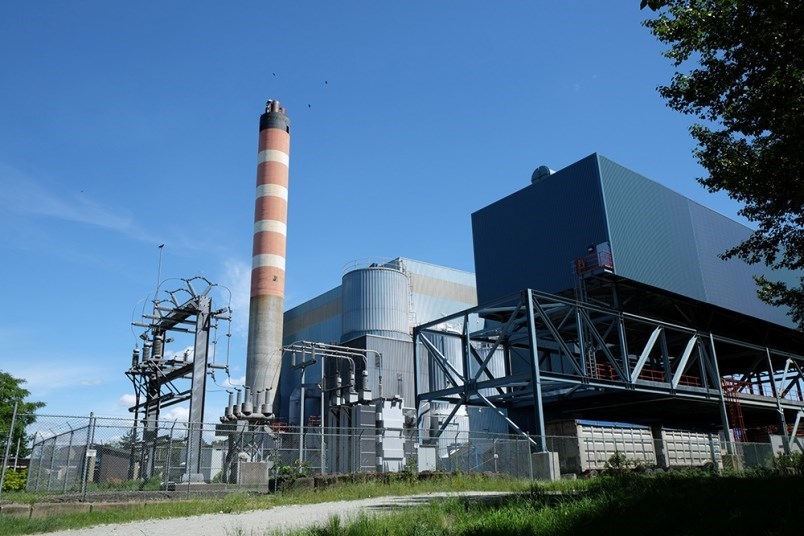Environmental watchdogs say new testing shows a Burnaby waste incinerator is emitting dangerous levels of toxins, however regional air-quality officials aren’t buying their claim.
Zero Waste BC, a non-profit advocacy group for waste reduction, says it has found “dangerous levels of dioxins, furans, and heavy metals in dust collected from a rooftop within 500 metres” of the 37-year-old waste-to-energy facility.
The group issued a joint press release July 7, claiming nearby property owners have “reported substantial material deposits from the air accumulating on their properties, requiring annual cleaning” and that this new round of independent testing corroborates such claims.
“The test results showed a toxic equivalency of 44 picograms per gram of dioxins and furans in the dust, a significant health risk considering Health Canada's tolerable daily intake (TDI) is just 2.3 picograms per kilogram of body weight,” the group stated.
Dr. Tim Takaro, a physician-scientist with the Canadian Association of Physicians for the Environment, said the testing should spur a full and independent assessment from the Metro Vancouver Regional District, which operates the facility and is responsible for air-quality monitoring.
“Metro Vancouver has said that the waste-to-energy facility is designed to prevent dioxins and furans from entering the environment and that incinerators ‘do not create a health risk to the public or people working in the vicinity.’ However, this incinerator is clearly a source of hazardous pollutants in an already polluted airshed,” Takaro said in a statement.
Zero Waste BC said current testing levels are inadequate, testing only the dioxins and furans on one of the facility’s three boilers once a year under ideal conditions that avoid start-up or shut-down periods.
The group asserted an operational certificate granted by the B.C. government fails to require continuous testing for heavy metals and dioxins/furans, unlike more stringent standards in places like Oregon. Furthermore, Zero Waste BC said that certificate has extended the deadline to reduce acid gases (hydrochloric acid and sulphur dioxide) from 2021 until 2028.
Ultimately the group and its allies—including Doctors for Planetary Health-West Coast, the Global Alliance for Incinerator Alternatives, For Our Kids-Burnaby, Force of Nature Alliance-Burnaby, and West Coast Climate Action Network—want the incinerator shut down and oppose new investments planned to keep the aging facility operating.
Zero Waste BC said officials should be working harder to reduce waste generated by the public.
“Evidence shows that more emphasis has been placed on maintaining the 37-year-old incinerator,” Zero Waste BC board member Sue Maxwell said in a statement.
than shipping garbage outside the region, with Vancouver’s landfill at operating capacity.
Paul Henderson, Metro Vancouver’s general manager of solid waste services, told BIV he reached out to the property owner where the tests are said to have been conducted. He said he has yet to hear back since his on June 25 inquiry.
“Having reviewed the claims being made, we’re confident that the dust does not originate from the Waste-to-Energy Facility. Process air from the facility passes through multiple stages of treatment and filtration that removes 99.99 per cent of particulates,” he said in an email.
“By the time the air enters the environment, any remaining particulate material is far too fine to contribute to dust such as observed. There are industrial facilities close to the building in question, including sand and gravel processing, not to mention heavy traffic on nearby streets.
“Metro Vancouver has offered to meet with the property owner to observe the dust accumulation, describe the processes we have in place to treat, filter and contain fly ash, and to conduct testing to compare the ash from the facility to the material observed.”
Henderson has previously stated Metro Vancouver’s current 65 per cent recycling rate leads North America and is double the Canadian average.
In March, Canadian subsidiary of the Paris-based company Veolia began a five-year, $245-million contract to operate and maintain the south Burnaby facility.
—With files from Stefan Labbe, BIV

